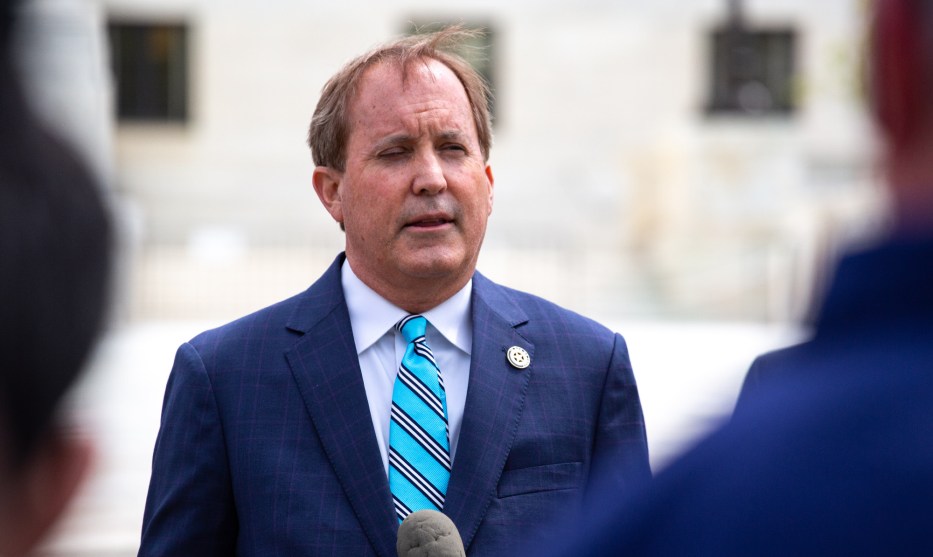
Bryan Olin Dozier/NurPhoto via ZUMA Press
The people who worked the hardest to overturn the 2020 presidential election have faced few professional consequences. I don’t mean the jet-setting realtors and ex-NYPD officers and children of conservative commentators and so on who stormed the Capitol on January 6th—they’re pretty well accounted for in court filings. I mean the people in positions of power who used that power for ill: Josh Hawley is still in the Senate; Donald Trump is a 19th-century party boss; Mark Meadows is now a man of letters.
But Ken Paxton, at least, isn’t out of the woods just yet. In December of 2020, the Texas Attorney General, who I profiled for a recent issue of the magazine, sued Pennsylvania and three other states Joe Biden won, and pushed to have their electoral-college votes thrown out. The Supreme Court declined to hear the case and unanimously rejected Paxton’s argument, but the matter didn’t end there. In the aftermath, dozens of constituents—including four former presidents of the State Bar of Texas—filed formal complaints, charging that the frivolous, disingenuous, and incredibly sloppy lawsuit had violated ethics guidelines. The state bar investigated. And on Friday, it took action: the bar’s Commission for Lawyer Discipline sued Paxton’s top deputy, Brent Webster, accusing him of “professional misconduct” for his handling of the case. According to the Austin American-Statesman, Paxton himself “expects to be named in a similar lawsuit.”
I can’t speak for the commission’s case against Webster or Paxton, but the electoral-college lawsuit was about as bad of a brief as you’ll ever see from a state AG office—actually, 18 state AG offices—in the Supreme Court. It talks about Dominion voting machines. It misstates the number of electoral votes in play. It repeats this random claim from a guy in California that “the statistical improbability of Mr. Biden winning the popular vote in these four States collectively is 1 in 1,000,000,000,000,000.” I would have loved to hear the Texas solicitor general walk the justices through the math on that one at oral arguments, but it didn’t go to oral arguments, and the Texas solicitor general wisely sat out this case.
The lawsuit had little purpose beyond inflaming the Big Lie and insulating Paxton from the consequences of his various other scandals. And in that respect, even if the bar does bring suit against him, it will have been a success. He spoke before Trump on the Mall on January 6th—and he’s on pace for a third term.













